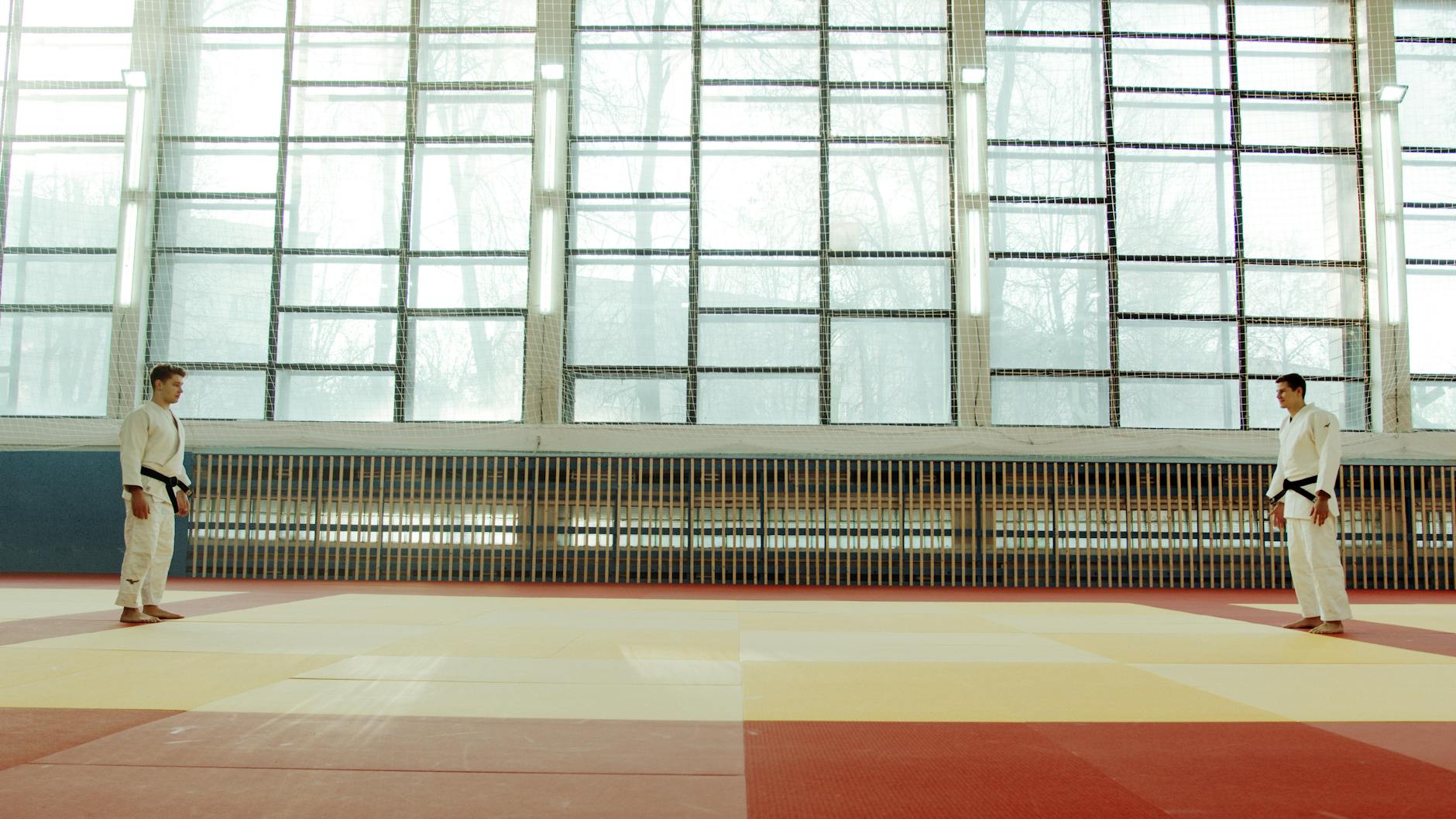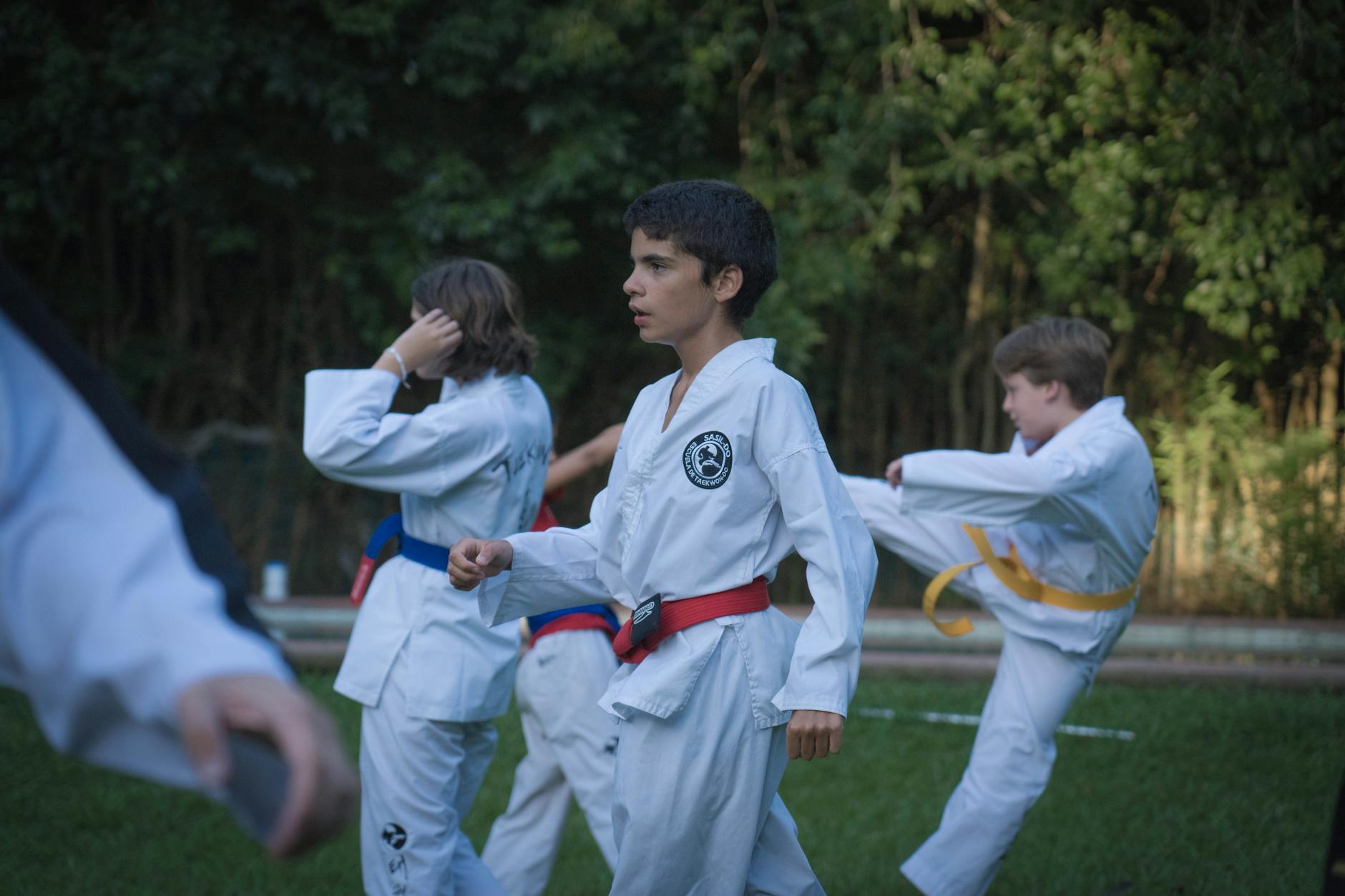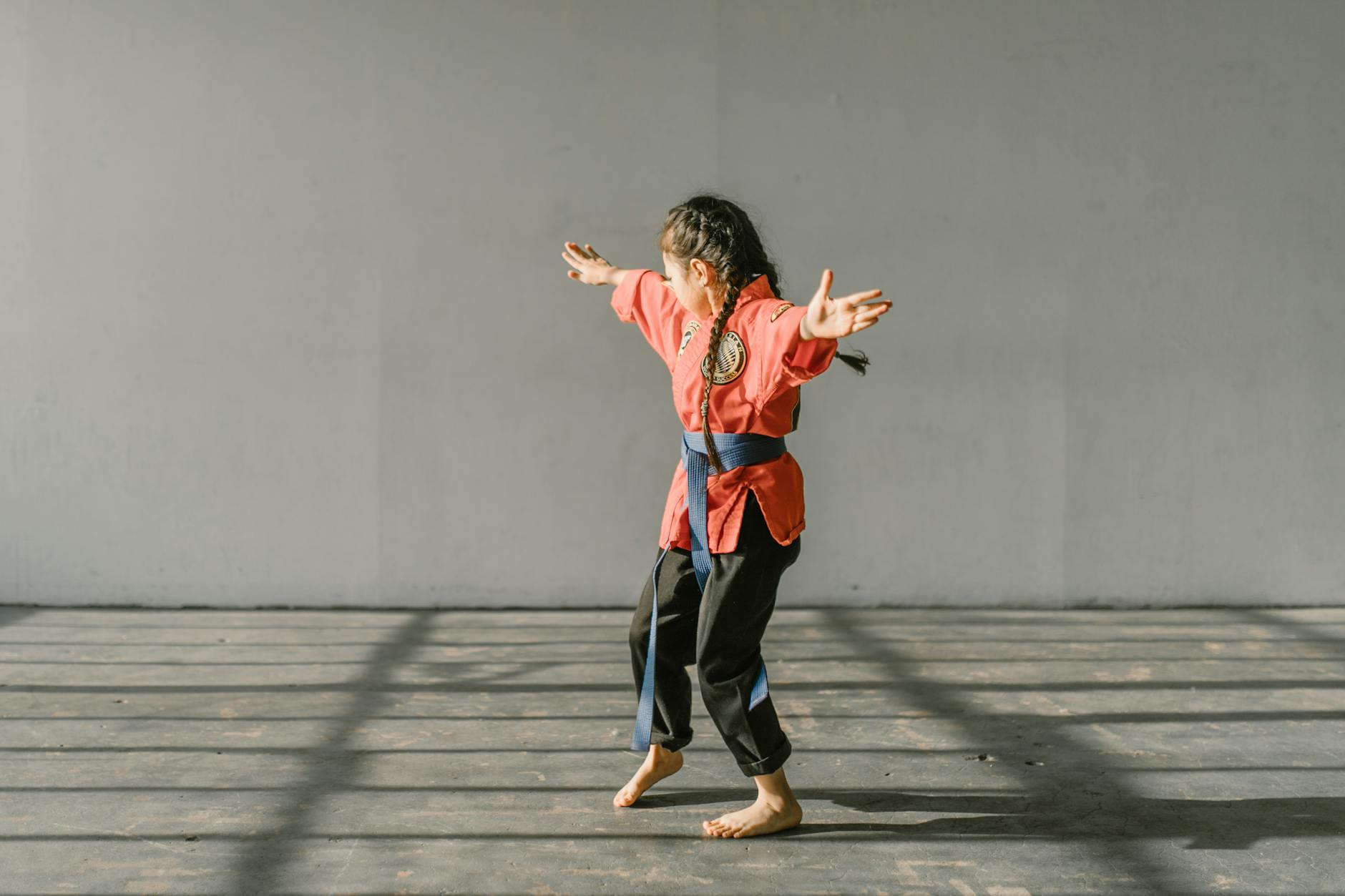Teaching kids Martial Arts Discipline can feel like a challenge in today’s fast-paced world. Martial Arts Discipline offers a time-tested solution. Beyond punches and kicks, these practices shape young minds by promoting self-control, emotional awareness, and focus. The structured routines and goal-setting inherent in martial arts create habits that help kids thrive—both on the mat and in life. By equipping children with the tools to manage emotions and stay committed to their goals, martial arts plays a key role in building their character and setting them up for success.
Martial arts is more than just learning techniques or improving fitness—it’s a journey of building emotional and mental strength. Martial Arts Discipline one of the core life skills that children develop through martial arts training. By engaging in structured lessons, following routines, and reaching for milestones, kids learn focus, accountability, and perseverance in ways that stick with them for life. Let’s dive into how fosters martial arts discipline, starting with the role of repetition.
Repetition isn’t just tedious—it’s transformative. In martial arts, kids repeatedly practice punches, kicks, blocks, and stances. Why? Because mastery doesn’t happen overnight. When children drill these techniques over and over, they develop muscle memory and, more importantly, mental endurance. This repetitive process teaches kids to be patient and consistent, even when progress feels slow.
Think of it like sharpening a pencil. Each movement seems small, but the repetition eventually reveals a sharper, more defined result. Through martial arts drills, children internalize the power of persistence—something they can apply to school, sports, and life.

A young male martial artist training indoors with a punching bag.
Photo by Artem Podrez
Martial Arts Discipline programs revolve around visible goals, such as earning new belts or nailing a specific technique. For kids, the color of a belt represents more than just skill—it symbolizes hard work and improvement. Each goal, no matter how small, builds a sense of accomplishment that motivates kids to keep going.
When kids achieve these goals, they feel empowered. They begin to recognize the link between commitment and outcomes, fostering a “can-do” mindset in other aspects of their lives.
Accountability is a cornerstone of martial arts. Kids are taught to take responsibility for their attendance, effort, and attitude in every class. Coaches and instructors set clear expectations, but it’s up to the child to meet them. This practice creates a sense of ownership over their progress.
By becoming accountable for their actions, children develop self-discipline that translates beyond the mat. They understand that following through on commitments matters, whether in martial arts or everyday responsibilities like homework or chores.
This section has highlighted the building blocks of discipline through martial arts: repetition, goal setting, and accountability. These elements form a foundation that helps kids grow into focused, resilient individuals.
Martial arts isn’t just about physical strength or flashy moves—it’s a pathway to building discipline and emotional resilience. For kids, sticking to martial arts practices nurtures the mind and teaches valuable life skills, such as focus, emotional regulation, and confidence. Here’s how martial arts discipline training shapes young minds at a psychological level.
Martial Arts Discipline requires undivided attention during every session. From mastering complex forms to following an instructor’s instructions in a bustling dojo, kids must stay mentally present. This constant demand for focus can be transformative, especially in today’s world filled with distractions like smartphones and constant notifications.
This focused engagement doesn’t just stay in the dojo. Over time, kids start applying that level of concentration to other areas of life, such as schoolwork or extracurriculars.

Two martial artists face off in a sunlit dojo, wearing traditional judo gear.
Photo by Artem Podrez
Children often grapple with big emotions like frustration or anger, yet martial arts teaches them how to channel and manage these feelings. Breathing exercises, mindfulness techniques, and even meditation are key components in many martial arts traditions. These tools act as a “reset button,” helping kids ground themselves in emotionally charged situations.
For example, a child struggling with frustration during sparring eventually learns to pause, breathe, and approach setbacks constructively—skills that are transferable to tests, friendships, or even family arguments.
There’s no shortcut to mastery in martial arts. Reaching each milestone, whether earning a new belt or nailing a tough technique, takes consistent effort. This clear connection between hard work and achievement does wonders for self-esteem.
As children see their improvement, they grow more confident in their abilities, both on and off the mat. They begin to believe, “If I can achieve this through discipline, I can achieve other goals too.”
Through martial arts, kids build an inner strength that sticks with them for years. Skills go beyond physical coordination, touching on emotional regulation, focus, and a growing belief in their ability to rise to challenges.
Martial arts isn’t just about punches, kicks, or earning belts—it fundamentally shapes children’s behavior and mindset. Through consistent training, young martial artists learn discipline that extends well beyond the dojo. Concepts like respect, critical thinking, and self-control are reinforced in every practice, eventually becoming second nature. Let’s explore how martial arts helps kids develop essential behavioral traits.

Boys practicing Taekwondo outdoors, showcasing martial arts discipline and focus.
Photo by Martin.que
Martial arts training encourages children to think critically and make fast, sound decisions—especially during sparring sessions. Sparring isn’t just physical; it’s mental chess. Kids must evaluate their opponent’s movements, anticipate strategies, and respond accordingly within seconds. This process fosters situational awareness and sharpens decision-making abilities.
By practicing decision-making in a safe environment, kids learn to trust their instincts and remain calm under pressure, both inside and outside the dojo.
Respect lies at the heart of martial arts culture. From bowing at the entrance of the dojo to addressing instructors as “Sensei,” children are taught to honor the traditions and people around them. Over time, these practices foster a deep sense of respect and courtesy.
This culture of respect naturally carries into other areas of life. Children learn to treat teachers, parents, and friends with the same level of courtesy they practice in class.
Martial arts teaches that physical strength is not a tool for instigating conflict—it’s a resource for avoiding it. Kids are instilled with a sense of responsibility that prioritizes peaceful solutions over aggressive reactions. Learning self-defense becomes a way to build self-control, not start fights.
By adopting a mindset of self-control, children become adept at de-escalating disagreements, keeping themselves and others safe. This skill proves invaluable in handling tense moments at school, with siblings, or in sportsmanship.
Physical discipline plays a crucial role in the mental and emotional development of children training in martial arts. By focusing on structured physical routines, martial arts discipline creates opportunities for kids to refine their motor skills, build resilience, and unlock new ways of thinking. This mind-body connection is the cornerstone of how martial arts helps young learners grow, both physically and mentally.

A young martial artist in uniform practicing indoors with focus and energy.
Photo by RDNE Stock project
Physical martial arts discipline starts with fitness. The repetitive motions, drills, and sparring sessions are more than just physical exertion—they’re practice in precision and control. For kids, this strengthens motor skills and builds endurance in ways that benefit their overall health.
The structured routines in martial arts also teach kids the importance of taking care of their physical health. By improving their bodies through hard work and consistency, children develop an appreciation for staying active—something that benefits their emotional state, too.
Martial arts is about more than mastering physical techniques; it’s about cultivating mental sharpness. Structured physical routines spark significant cognitive development, helping kids adapt to challenges, bounce back from setbacks, and improve problem-solving abilities.
In martial arts, physical routines create a blueprint for tackling mental challenges. Learning to focus on the present moment, manage frustration, and embrace growth translates into academic and social confidence outside the dojo. This connection between physical and mental growth serves as a lifelong tool for success.
Martial arts offers a transformative way to shape discipline in children, blending physical activity with mental and emotional growth. Through its structured routines, kids build confidence, learn accountability, and develop the focus needed to tackle challenges in any area of life. The emphasis on consistent effort and emotional regulation fosters habits that extend far beyond the dojo, shaping resilient and thoughtful individuals.
For parents seeking a holistic approach to their child’s development, martial arts discipline stands out as a practical and engaging solution. Encouraging your child to step onto the mat might just set them on a path toward greater self-control, perseverance, and success. Why not explore a local class and see the benefits firsthand?